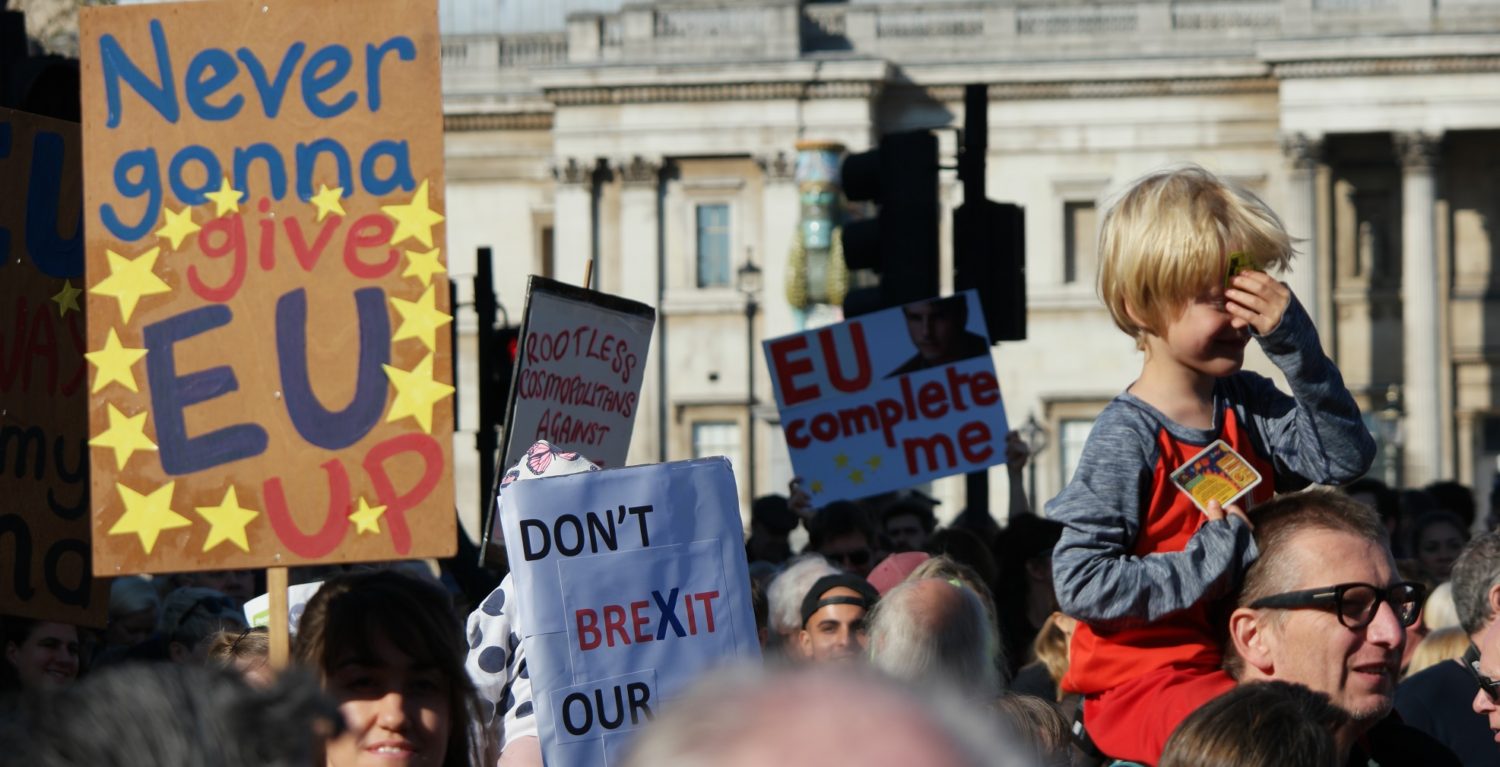What next for Brexit?
Eloise Todd analyses what the general election outcome means for the UK, European Union and the anti-Brexit movement.
Barring a political earthquake of Trumpian impeachment proportions, Britain will be leaving the European Union in 2020 – stage one of the break-up with the EU will happen on 31 January. The general election was a brutal end to a three-year struggle to keep a foot in the door to full membership of the EU. Despite the election outcome, support for a final say on Brexit for the people of this country has increased both in parliament and in the electorate over the last couple of years. But when the trigger was pulled on the election race, the delicate opposition coalition that had been diligently working towards securing a final say was blown apart by the surprise Lib Dem backing for Johnson’s election.
In the campaign, clarity and decisiveness of message won out. ‘Get Brexit done’ was as seductive as ‘take back control’ – and of course although it was dubbed the Brexit election, any general election is fought on the full range of policies, and the Conservatives stole just enough Labour clothes to obscure their naked austerity, and Labour’s manifesto, with some inspiring and visionary policies, failed the credibility sniff test with too many older voters.
Labour had finally got to a clear position on Brexit – in favour of a referendum on a credible, softer Brexit option versus remain, with the leadership staying neutral and so neither side being ‘Brexit-shamed’ in a future referendum campaign. In the end though, the position was only clear-ish. Earlier clarity would have allowed more time to communicate the final say policy to the public.
Sand in the gears of the remain effort came from many quarters, from the Liberal Democrats’ abandonment of support for a referendum in favour of revoke, to the ‘Unite to Remain’ effort that gained no seats for its three parties (and lost one for the Lib Dems) to some tactical vote websites that called too early and sowed confusion. The net result of all that activity was to obscure the central priority for all those that cared about staying in the EU: the hardest fight was always going to be in the Labour-Conservative marginals, and those wanting to stay in the EU needed Labour victory in those places. As those voters and seats increased in relevance, the movement to stay in the EU slipped further away from them.
In the end the goodwill built between opposition parties in late August and September that successfully opposed Johnson at his most ‘Viktor Orbanesque’ splintered just at the crucial moment. Instead we had confusion and rivalry.
So what do the anti-Brexit campaigners, supporters of a referendum, the citizens who have protested in their hundreds of thousands – topping a million more than once – do next?
First, holding the government accountable this year – and right up to 2024 – has never been more important.
There is a place for strong Brexit accountability campaign this year, especially since the government may bring the spectre of ‘no deal’ back into play in order to bounce the country and Europe into its desired trade deal. The anti-Brexit movement should have always been a convening place for the businesses and civil society organisations that would lose out because of Brexit, but all too often those groups have given the government a free pass on Brexit, fearing that overt criticism of plans would affect their access to ministers. One of the most worrying trends in the UK over the past few years is the lack of willingness of most civil society organisations and businesses to speak truth to power. If that was the case with a government with only a slim majority based on a confidence and supply arrangement, it could be worse with a majority government.
Organisations that will confront the prime minister and the Cabinet with the truth will be more important than ever – and the anti-Brexit groups that have already signalled they will be moving into this space should also work hard to get influential figures in business and society to speak out without fear or favour. While the next year will mean putting in very hard yards, all such groups should have an eye to the future and be ready to pounce when the mortar in Johnson’s newly grouted blue wall begins to crumble and as the wheels on the get Brexit done bus start to fall off. When manufacturing jobs go in the newly Tory areas which were formerly Labour heartlands, sacrificed to a US trade deal, Johnson will be under pressure. If the UK fails to use all its remaining diplomatic muscle to change the course of the global climate negotiations and ends up siding with Bolsanaro and Trump, Johnson will be under even more pressure.
Second, if you share Labour values, join Labour and make the leadership election the biggest primary our country has ever seen.
Right now, joining Labour should be an act of political responsibility. Holding the government accountable on Brexit, human rights, fighting racism, protecting workers’ rights, keeping up ambition on the environment, and creating jobs for the future in skilled green jobs, tech and managing the AI revolution needs to be taken on wholesale by the next leader of the Labour party. It’s time for those from all parts of the left to come together, join or rejoin and help create a vision for the country that is internationalist to the core, and gets older voters on board while satisfying the hunger of young people for a different future.
The early days of the movement to fight Brexit were confused by the conflicting and multiple agendas around the table for many of those involved. The desire to establish a new centrist party, to fight Corbyn both within and outside the Labour party and to make the case for voting reform obscured the effectiveness of the anti-Brexit fight. All of that in-fighting needs to be boxed off and kept in the past, and the opportunity now centres on the ability of the party to move on from those deep visceral divisions and unite.
In the five short years to the next election, the demographics of Britain’s voting public will have changed radically, with millions of new young, deeply concerned and internationalist voters entering the fray and many who have found solace from a fast-changing world in isolationism departing the field. That new cohort needs to know there is an option for them, and more established Tory voters need to see that there is a case for a more progressive response to their concerns.
If ever a government needed an effective opposition, it is this one. It’s never been more important to mobilise. Our country needs us.
Photo credit: Flickr/Ashley van Haeften

